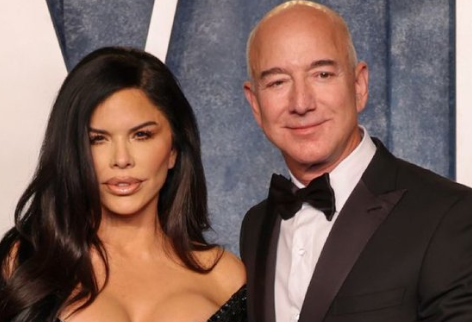The man wants to avoid the heavy taxation of Washington State. You can’t blame him for this, as Washington, California and Oregon all have punitive measures in place to hurt Bezos and others who create wealth. You could say that Bezos is seeing the light more and more.
Jeff Bezos, the Amazon founder, has been making significant financial moves by continuing to sell off his Amazon shares, with a recent regulatory filing revealing his plans to sell 25 million shares worth approximately $5 billion. This follows a prior sale of 50 million shares valued around $8.5 billion. These sales are notable as they coincide with Bezos’s relocation from Seattle to Miami—a move that has sparked discussions regarding Washington state’s capital gains tax.
Introduced in 2021, Washington’s capital gains tax imposes a 7% tax on gains over $262,000 from the sale of stocks and bonds. By moving to Florida, which lacks such a tax, Bezos has saved upwards of $600 million from his earlier share sales alone. This tax strategy is particularly impactful considering Washington’s tax structure, which heavily relies on sales, property, and business taxes, rather than income taxes.
A dominant share in many portfolios in recent years Amazon turns 30 tomorrow.
One of the so called magnificent seven.
It took Jeff Bezos a long time to hits these dizzy heights, starting his empire as a book retailer in his garage.#shares #unicorn #magnificent7 #amazon30 pic.twitter.com/eNzdeE3RES
— Jennifer Ellis (@FinTechJenny) July 4, 2024
The capital gains tax itself has been controversial, especially within the tech community where stock-based compensation is common. Critics argue that it drives businesses and affluent individuals out of the state, while proponents believe it helps address income inequality. The tax’s revenue effects have been mixed; it generated $786 million in its first year, surpassing expectations, but fell to $433 million in its second year.
Washington’s dependence on a small number of high-income taxpayers for this revenue is risky, as highlighted by the potential financial impact of Bezos’s departure. His move reflects a broader trend of households reassessing the cost-benefit balance of living in high-tax states, especially post-pandemic.
𝗕𝗲𝘇𝗼𝘀 𝘁𝗼 𝗦𝗲𝗹𝗹 $𝟱 𝗕𝗶𝗹𝗹𝗶𝗼𝗻 𝗼𝗳 𝗔𝗺𝗮𝘇𝗼𝗻 𝗦𝗵𝗮𝗿𝗲𝘀 𝗮𝘀 𝗦𝘁𝗼𝗰𝗸 𝗛𝗶𝘁𝘀 𝗥𝗲𝗰𝗼𝗿𝗱 𝗛𝗶𝗴𝗵
Jeff Bezos plans to sell 25 million Amazon shares worth $5 billion after the stock hit a record high of $200. Following this sale, Bezos will still hold 8.8%… pic.twitter.com/WpfGkyZmJS
— FinShorts (@hellojagstamp) July 4, 2024
The legal status of the capital gains tax was confirmed by the Washington state Supreme Court, which ruled it lawful. This decision was upheld by the U.S. Supreme Court’s refusal to hear an appeal. Despite this, the debate continues, with Initiative 2109 to repeal the tax qualifying for the November ballot.
Financially, Bezos remains deeply intertwined with Amazon, holding a significant portion of its stock. Amazon’s stock has seen substantial growth this year, contributing to Bezos’s $44.7 billion increase in net worth, making him the second richest person globally.
Beyond his financial maneuvers, Bezos is focusing more on his Blue Origin space venture and managing challenges at The Washington Post, which he acquired in 2013. His personal ties to Seattle have diminished following his CEO departure from Amazon and his 2019 divorce from MacKenzie Scott.
ICYMI: Jeff Bezos is selling $5 billion more of Amazon stock, his fourth sale this year https://t.co/D7NNNlshMz
— Quartz (@qz) July 4, 2024
Key Points:
i. Jeff Bezos plans to sell an additional 25 million Amazon shares, worth approximately $5 billion, following an earlier sale of 50 million shares valued at around $8.5 billion.
ii. Bezos’s relocation from Seattle to Miami has avoided Washington state’s 7% capital gains tax, saving him potentially over $600 million on his stock sales.
iii. Washington’s capital gains tax, introduced in 2021, generated $786 million in its first year but saw a decrease to $433 million in its second year, indicating fluctuating revenue.
iv. The tax has been controversial, especially in the tech sector, due to its impact on stock-based compensation and the potential for driving wealthy residents and businesses out of the state.
v. Despite legal challenges, the Washington state Supreme Court upheld the capital gains tax as lawful, although a new initiative to repeal the tax will appear on the November ballot.
RM Tomi – Reprinted with permission of Whatfinger News



